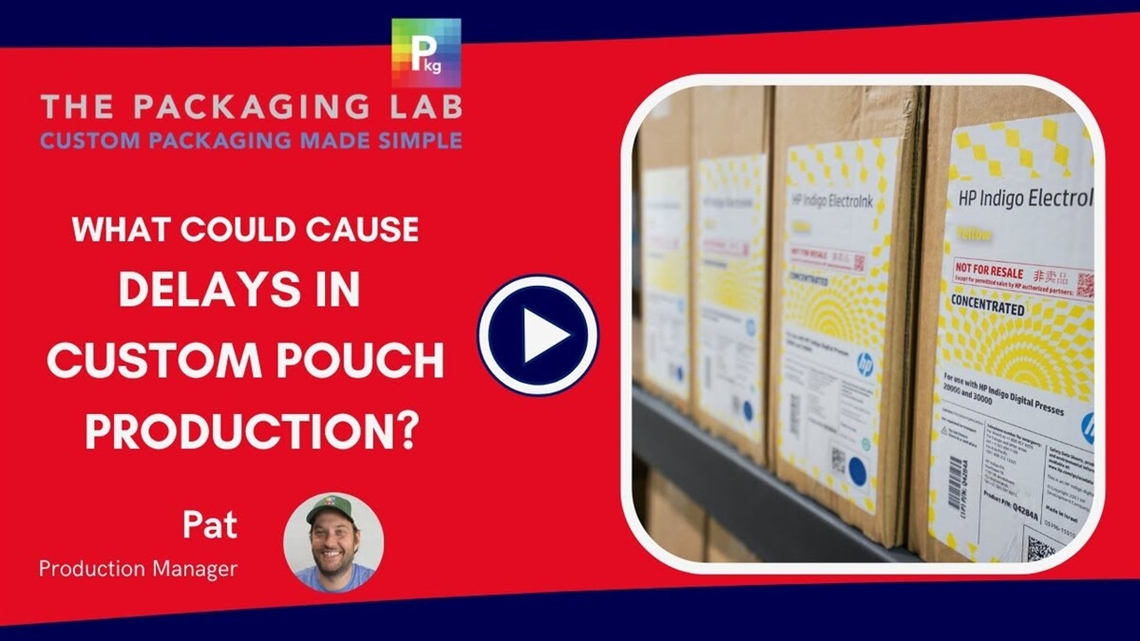What Could Cause Delays in Custom Pouch Production?
29 January 2025
Delays in custom pouch production can be a frustrating challenge for businesses relying on timely packaging to meet market demands. Understanding the factors contributing to these delays is essential for both manufacturers and customers to navigate potential pitfalls and ensure smoother operations. In this article, we explore the common causes behind these setbacks, offering insight into how they impact the process and what can be done to mitigate them.
The Role of Supplier Relationships and Material Availability
One of the most critical factors influencing custom pouch production timelines is the relationship between manufacturers and their suppliers. Access to reliable and consistent materials, such as films and laminates, is essential for maintaining production schedules. However, the flexible packaging industry often experiences fluctuations in the availability and performance of certain materials.
Managing Material Supply Challenges
To minimize disruptions, manufacturers typically work with multiple suppliers for key materials. This diversification ensures a backup plan if one supplier experiences delays. Forecasting production needs well in advance and maintaining a robust inventory of film substrates and laminates are also key strategies to avoid delays.
However, even with careful planning, supply chain issues can arise, especially during peak seasons or global disruptions. These challenges underscore the importance of strong vendor relationships and proactive communication to anticipate and address potential bottlenecks.
The Impact of Seasonal Demand and Order Forecasting
Seasonal fluctuations in demand can also lead to delays in custom pouch production. Manufacturers must prepare for these busy periods by forecasting their schedules and maintaining sufficient inventory. Proper planning ensures that businesses can handle the influx of orders without compromising delivery timelines.
Preparing for Seasonal Surges
For customers, understanding the manufacturer’s lead times and production capacity during high-demand seasons is crucial. Providing advance notice for larger orders allows manufacturers to allocate resources more effectively, reducing the likelihood of delays.
Customization Challenges and Customer Feedback Loops
Customization is a significant advantage of modern pouch production but can also be a source of delays. The process often requires collaboration between manufacturers and customers to ensure that the pouches meet specific design and functional needs. Factors such as artwork alignment, pouch dimensions, and material compatibility can impact production timelines.
The Importance of Clear Communication
A common issue arises when customers are dissatisfied with the final look or performance of their custom pouches. For instance, the size may fit the product technically but fail to deliver the desired aesthetic appeal on the shelf. Feedback loops are essential here, allowing customers to refine their designs and order smaller batches for testing before committing to larger runs.
Manufacturers offering flexible options, such as no minimum order requirements, enable small businesses to experiment with different designs without overcommitting resources. This approach supports iterative improvements while minimizing waste and financial risk.
Balancing Efficiency and Accessibility
A unique challenge in the pouch production industry is balancing the need for efficiency with accessibility for smaller businesses. While large-scale production often benefits from economies of scale, manufacturers committed to serving businesses of all sizes must adopt flexible systems that accommodate diverse order volumes.
No Minimum Orders: A Strategic Advantage
By eliminating minimum order requirements, manufacturers can empower startups and small businesses to test their products and packaging designs in real-world conditions. This approach fosters innovation but requires additional operational flexibility, which can occasionally impact lead times.
How Customers Can Help Avoid Delays in Custom Pouch Production
While manufacturers bear much of the responsibility for preventing delays, customers also play a critical role in ensuring smooth operations. Clear communication of requirements, timely submission of artwork, and realistic expectations regarding lead times are essential.
Four Tips for Customers
- Plan Ahead: Allow sufficient time for production and delivery, especially during busy seasons.
- Collaborate Early: Work closely with manufacturers to finalize design specifications and materials.
- Test Small Batches: Use smaller runs to refine your design before scaling up to larger orders.
- Provide Detailed Feedback: Share specific concerns about size, aesthetics, or performance to streamline future orders.
Conclusion
Delays in custom pouch production are often the result of complex, interconnected factors such as supplier relationships, material availability, seasonal demand, and customization challenges. By understanding these issues and fostering strong collaboration between manufacturers and customers, businesses can mitigate potential setbacks and ensure a more efficient production process. Whether you’re a small startup or an established brand, proactive planning and communication are your best tools to keep your packaging goals on track. Contact The Packaging Lab today to learn more about how we can support your business needs.
